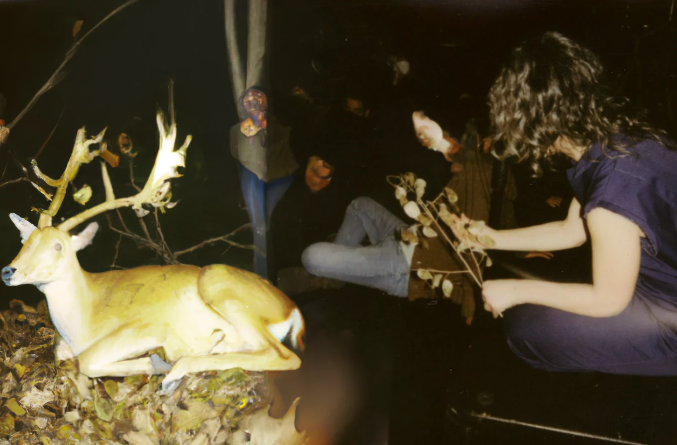
The forest_
Lucia Palladino
Description
The forest_ performs transitional contexts within which language means from the encounter with those who pass through them. It thus creates a performative system out of what words are not yet but can become in the near future, making explicit the concrete and transformative possibility of entering the world. The research is developing a performance, a publication and an installation which are sets of worlds in the world, simple technologies of complexity.
The forest_ is a project which develops research on verbal language from an ontological point of view, i.e. on the way in which language becomes producer of knowledge. To Lucia Palladino, all ways of knowing the world are constituent elements of the world itself. They form it, so to speak. So knowing also means producing the world. And so, practising different ways of knowing means practising different agencies on the world. Verbal language is one way of knowing the world, but not the only one. But it is certainly one of the most powerful means in the hierarchy of knowledge about our world.
In order to produce changes in the world and begin to learn about the world, understood as a complex system of relationships, I believe it is necessary to reshape the hierarchical order of knowledge. The hierarchical order is made possible by the fact that categories of knowledge have been generated, and there are some that have more power than others and can therefore have more or less transformative power than others. Verbal language is perhaps the most powerful mode of knowledge, and it seems to me necessary to move it away from the pinnacle of power and learn to use it differently, weaving it inseparably with everything else. It is therefore urgent for me to activate an operation of deconstruction of knowledge based on classes: social classes, material classes, gender classes and species classes, in order to imagine modes of learning capable of producing other possible worlds.
This shift from the top, or the centre of power, is a founding element of all her research work. In the theatre, the kings seat is the privileged point of vision and listening. But it is only the context that creates a privileged place from which it is possible to see, hear and understand better. If she creates a context in which there is no position from which we can see better, she is saying about the world that not everything can be grasped and that reality is elusive and complex.
If I enter a forest, every place is the place of the king.
